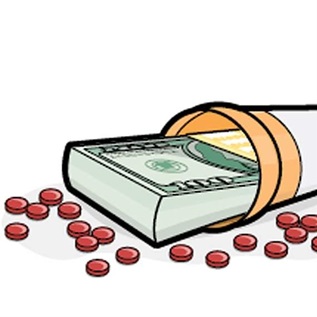Pew Comments on Centers for Medicaid and Medicare Services' Information Collection Activities Draft Guidance
April 8, 2013
Marilyn Tavenner
Acting Administrator
Centers for Medicare & Medicaid Services (CMS)
U.S. Department of Health and Human Services
200 Independence Ave, SW
Washington, DC 20201
Re: Transparency Reports and Reporting of Physician Ownership or Investment Interests
Dear Administrator Tavenner:
The Pew Charitable Trusts appreciates this opportunity to submit comments to CMS's "Information Collection Activities" draft guidance issued on Feb. 8, 2013.
Pew is an independent, non-profit organization that applies a rigorous, analytical approach to improve public policy, inform the public and stimulate civic life. The Pew Prescription Project has worked to promote transparency of financial relationships between pharmaceutical and medical device makers and health care providers.
We share CMS's commitment to enhancing the quality, utility, and clarity of the information to be collected in order to report payments or other transfers of value to covered recipients. After reviewing the three data collection templates proposed by the agency, we concluded that for the most part the documents will accurately collect the information on applicable manufacturers, transfers of value, and covered recipients as promulgated in the statute and in the final rule.
However, we suggest that both the research and non-research payment templates be modified in order to make it easier for consumers to identify which drugs, devices, biologicals, or medical supplies are associated with particular transfers of value.
Row 27 of the research and non-research templates calls for the name of associated drugs, devices, biologicals, and medical supplies in a 100-character field.1 If manufacturers list more than one product in this field, it would be difficult for consumers and other end-users to search for or sort by a specific product.
As an example of how this could become problematic, a manufacturer might produce a number of different medications and may fund a speaker program in which all of their products are discussed. In this field, several medications could be listed, and they may be listed by either their brand name, or their generic name, or both. Such a list would make it impossible to sort
payments by specific products, and would prevent end users and consumers from identifying payments associated with specific products. The inability to clearly link products with their associated transfers of value would undermine the intent behind transparency reporting and makes it difficult to determine the scope of any potential conflict of interest surrounding
particular products.
Therefore, we suggest that each data field contain only a single product, and that manufacturers be required to use more than one data field when a transfer of value is relevant to more than one product.
The Pew Charitable Trusts appreciates this opportunity to submit feedback on CMS's "Information Collection Activities" draft guidance. As the agency works to finalize its implementation guidelines around data collection, we would appreciate consideration of the recommendations provided above.
Sincerely,
Daniel Carlat, MD
Director, Pew Prescription Project
The Pew Charitable Trusts
1 - Centers for Medicare & Medicaid Services. February 8, 2013. Data Collection and Submission of Transparency Reports and Reponing of Physician Ownership or Investment Interests










